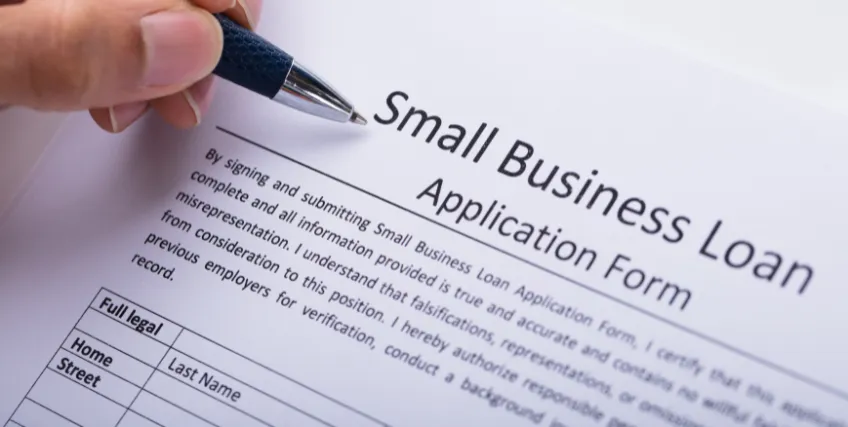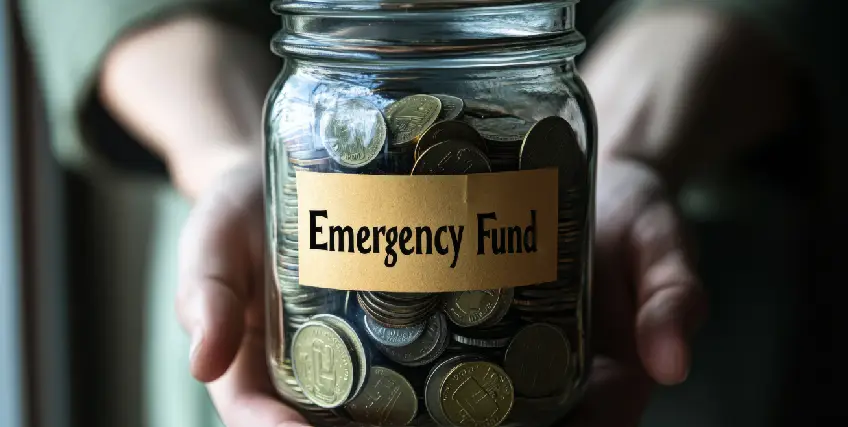A Complete Guide to Restaurant Business Loans
October 08, 2025 | Last Updated on: October 08, 2025

There are many costs involved with opening and running a restaurant, even in a state like Texas, where business owners operate nearly 57,000 restaurants. Between buying or renting space, building out the property, purchasing restaurant equipment, buying inventory, marketing, and hiring employees, it’s easy to see how the average restaurant startup costs range from $175,000 to $750,000.
These sky-high expenses and ongoing operational costs make various restaurant funding options necessary for many restaurateurs. Thankfully, there are many different types of restaurant financing options available to help meet your business needs. Here’s a look at how small business owners can cover upfront expenses, fund a new restaurant, pay for renovations, or simply keep the lights on.
Types of Restaurant Loans
Depending on what you need to fund and how quickly you need the money, there are many different loan options and lenders for both long- and short-term restaurant financing.
Traditional Bank Loans
Many banks offer business lines of credit and term loans to new and established restaurant owners. This financing option typically offers competitive rates and various repayment terms, but eligibility criteria can be difficult to meet, especially for new businesses.
If you have an existing relationship with a bank, it may be easier to qualify for a loan based on business and/or personal credit factors. If you don’t have a strong enough business credit score or financial history, you may need to offer a personal guarantee to secure the loan.
SBA Loans
SBA loans are a type of business loan that is secured by the U.S. Small Business Administration (SBA). These government-backed small business loans offer notably higher loan amounts — as much as $5.5 million through some lenders — and lower rates than many traditional lenders. Funds are available for working capital for your business or to purchase specific business assets, such as kitchen equipment or a new location.
There is a lengthy and often in-depth approval process for SBA loans, so they may not be the right type of loan for business owners who need cash fast. SBA restaurant loans can take anywhere from a few business days to multiple months from application to disbursement, and often require you to provide everything from bank statements and P&Ls to previous tax filings and more. The type of loan you choose (SBA 504 loans versus SBA 7(a) loans, for example) and the provider you go through can impact this timeline.
Online Lenders
Many online lenders offer various restaurant industry loans. This funding for business in Texas often involves an online application process, immediate pre-approval, and fast funds disbursement straight into the bank account of your choosing. The downside is that these loans often have higher rates than business lenders or banks with which you have a relationship.
You can compare online lenders easily to see which meets your funding needs, whether your restaurant needs a secured real estate loan or to borrow unsecured funds for operational expenses.
Equipment Financing
If you want to purchase specific equipment for your business, an equipment loan may be the answer. These loans are often collateral-based, meaning that the asset you’re buying is used to secure the debt; if you default on your monthly payments, the lender can repossess your asset whether it’s commercial real estate or new equipment.
Since these secured loans hold collateral assets, they may have lower interest rates and easier approval than unsecured business loans. That said, borrowers with bad credit may still find it challenging to qualify for restaurant equipment financing and may even need a personal guarantee.
Merchant Cash Advances (MCAs)
A merchant cash advance is not a loan per se. Instead, a business sells a portion of its future earnings in exchange for an advance on that expected income. This type of financing is usually based on an existing restaurant’s previous credit card sales and income trends, so it isn’t a good business financing option for new or potential restaurants.
Though MCAs can be a fast way to access cash and might be an alternative to working capital loans, they tend to have high fees. Business owners should also keep in mind that this advance will impact future merchant payments, which can further affect cash flow.
Eligibility for Loans
Qualifying for a restaurant business loan will vary based on the traditional or alternative lender you choose, how much you need to borrow, your business history, and even how you plan to use the funds.
Credit Score
In most cases, you’ll need good business credit if you want to lock in the best loans with the most favorable terms. You might be able to qualify based on your personal credit score, as well, though loans secured by collateral could have even more flexible eligibility requirements.
Business Plan
If you are looking to borrow a lot of money, need funds to start a new business, or want to borrow from an SBA-backed lender, expect to provide all parties with a business plan. This plan should show clear financials and projections based on your research and experience (if any).
Time in Business
Lenders prefer to lend money to established businesses. The longer you’ve successfully been in business, the more likely you are to get approved.
Revenue and Cash Flow
Proof of stable income and revenue is crucial, whether you’re borrowing for an established or new business. If your restaurant is already operational, lenders will want to see earnings, profit and loss statements, tax returns, bank statements, and the like. If you’re opening a new business, your personal proof of income may be required instead.
Collateral
Depending on the type of loan you request and how well you qualify, lenders may want you to put property or equipment up as collateral to secure the loan. Collateral is commonly required when taking out loans for specific assets; for example, if you’re taking out a food truck loan, your actual food truck will usually secure the loan. If you’re taking out a commercial real estate loan to buy a building for your restaurant, the property itself will secure the loan.
Loan Application Process
The process of applying for and taking out a restaurant business loan will be different depending on the lender you choose, the type of loan you need, whether you’re a new business, and even how much you want to borrow. If you’re looking to get $1 million in SBA restaurant financing, for example, expect the process to be longer and more arduous than if you want to borrow $5,000 from your existing credit union.
Though your exact experience will vary, here’s a general idea of how the restaurant business loan application process works.
Prepare Documents
Gathering your important documents initially will save you time when applying for a new loan. If you don’t yet know what your lender will require, you should pull your:
- Financial statements, like checking and savings statements and P&Ls
- Business (and sometimes personal) tax returns
- Business licenses
Choose Your Lender
You have many different banks, credit unions, online lenders, and SBA lenders to choose from when borrowing for your restaurant. Spend some time researching each one, including the loan limits and requirements. You might even want to get pre-approved and compare rates before making a final decision.
Once you’ve chosen your lender, submit your application. This includes completing any paperwork required by the lender and providing all documentation for you and your business. When your loan application is approved, you’ll need to review the lender’s terms before signing; don’t forget to confirm the loan amount, repayment term, interest rate, and any applicable fees.
Loan Terms
On that note: Your restaurant loan terms will determine how affordable this debt is and how much you’ll pay to borrow that money.
- Interest rate: Often expressed as an annual percentage rate (APR), your loan’s interest rate dictates how much you’ll pay your lender each year for the loan. This rate can be fixed or variable, depending on the loan type, and may be lower for unsecured loans, borrowers with excellent credit, or shorter repayment terms.
- Repayment term: You may be repaying your loan in one lump sum or, more commonly, over a period of many months. Each lender has its own repayment term options; the longer the loan term, the less you’ll pay monthly.
- Fees: In addition to interest charges, lenders may charge origination fees, early prepayment penalties, or late fees if you miss a payment.
Alternatives to Loans
Are you unsure if a restaurant loan suits you and your business dreams? There are a few other options to consider.
Crowdfunding enables you to raise funds from public sources, such as your community. Some common crowdfunding platforms include Kickstarter and Fundable. Many crowdfunding campaigns rewards to supporters once the business is up and running (like a free meal), in exchange for upfront capital.
Investors interested in your business can offer funds to get you started or help you expand. These angel investors or equity partners will typically front you cash in exchange for a portion of future proceeds or ownership in the company.
You may qualify for private, local, state, or federal grants if you’re a minority-owned business, are starting your first company, or meet other criteria. While limited in nature, these grants generally don’t need to be repaid.
Managing Loan Repayment
Paying down your restaurant debt as agreed helps boost your business credit and avoid unnecessary fees. Keep a close eye on your revenue and expenses to maintain cash flow. Depending on the seasonality of your business, some monthly payments may be more difficult to make than others, especially if you don’t budget ahead of time. Prioritizing payments when calculating your budget and spending will help you avoid missing those payments or even defaulting on the debt.
If you later experience financial hardship or want to lock in better rates, consider refinancing your loan. A refi can stretch out the repayment term to lower monthly payments, reduce your interest rate, remove a co-borrower, or all the above.
Final Thoughts on Restaurant Business Loans
A restaurant loan can help you get your new business started, carrying you through periods of shallow cash flow, or even finance the expansion of your company down the line. The right restaurant loan for you depends on your company’s needs, its financial health, your business and personal credit scores, and even your future plans for the company. Choosing the right loan and lender will ensure that you get the cash you need with the best possible terms.
FAQs about Restaurant Business Loans
Can you get a business loan with no revenue?
Business loans may be available to new companies or those with no revenue, but they may require collateral and/or a personal guarantee. You may also find that no-revenue companies are limited in how much they can borrow and the loan repayment terms available.
How much will a bank give me for a business loan?
Each lender has its own business loan limits, which may also vary based on your own eligibility. SBA-backed loans, for example, are available for anywhere from $500 to $5 million, though not all borrowers will qualify.
Do banks give loans to LLC?
Yes, banks will offer restaurant business loans to LLCs, as long as the business meets the lender’s eligibility requirements. New businesses or those with no revenue may require a personal guarantee and/or collateral, while existing businesses’ eligibility will be based on factors like credit score and cash flow.
Do banks give startup loans to new restaurants?
While you can get a restaurant loan as a new startup, the process will be a bit more difficult. You may need to provide a personal guarantee and, depending on how you plan to spend the money, may also need to offer collateral to secure the loan.




